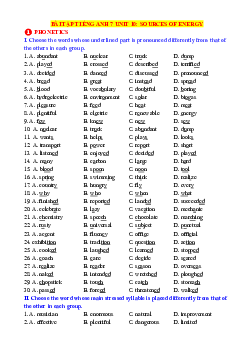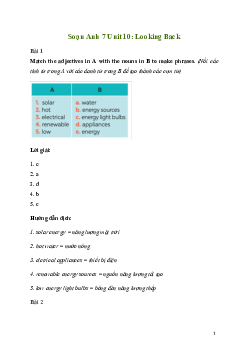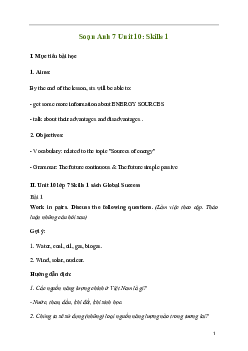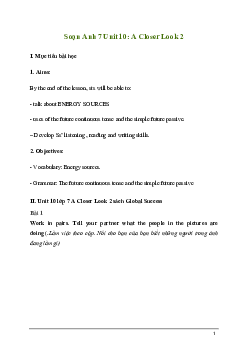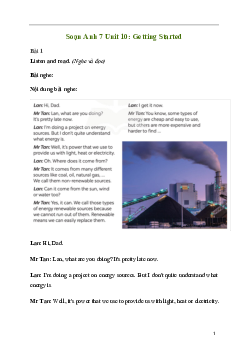

Preview text:
Unit 10 lớp 7 Communication sách Global Success Everyday English
Asking for explanation (Yêu cầu sự giải thích)
1. Listen and read the conversation. Pay attention to the highlighted questions.
(Nghe và đọc đoạn hội thoại. Hãy chú ý đến những câu hỏi được làm nổi bật.)
2. Work in pairs. Make similar conversations to ask for explanations of the phrases:
hydro energy, energy from coal...
(Làm việc theo cặp. Thực hiện các cuộc trò chuyện tương tự để yêu cầu giải thích các
cụm từ: năng lượng thủy điện, năng lượng từ than đá ...) Gợi ý đáp án
Nam: What does “hydro energy" mean?
Minh: Well, it's energy that comes from the water.
Nam: And what does "energy from coal” mean?
Minh: It's another type of energy and it comes from coal. Saving energy
3. Work in pairs. Ask your partner the following questions and tick (✓) his or her answers in the boxes.
(Làm việc theo cặp. Hỏi đối tác của bạn những câu hỏi sau và đánh dấu (✓) câu trả lời của họ vào ô trống.)
4. Work in groups. Tell the group how well your partner saves energy.
(Làm việc nhóm. Cho nhóm biết đối tác của bạn tiết kiệm năng lượng như thế nào.) Gợi ý đáp án
Nam saves lots of energy. He walks to school every day. He always turns off the TV
when not watching it and his family are using low energy light bulbs at home.
5. Answer the questions in 3 on your own. Then tell the class how well you save energy.
(Trả lời các câu hỏi trong 3 câu hỏi của riêng bạn. Sau đó cho cả lớp biết bạn tiết kiệm
năng lượng như thế nào.) Gợi ý đáp án
I save much energy. I don’t walk to school but sometimes I use public transport. I always
remember to turn off the lights and TV when not using them.
